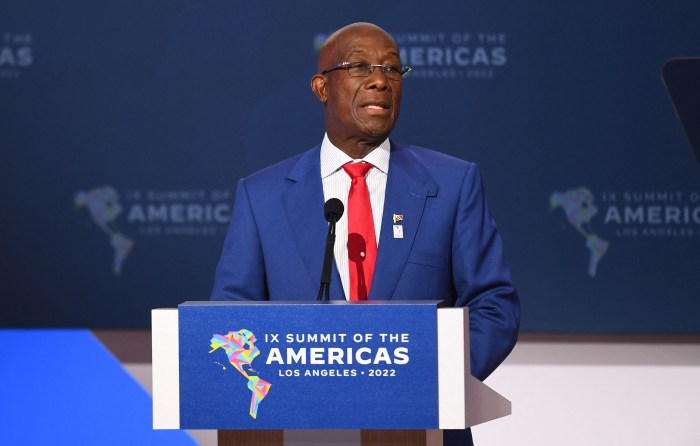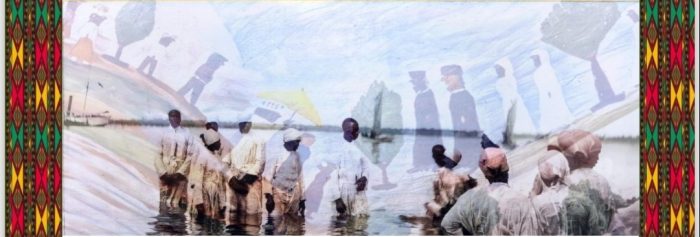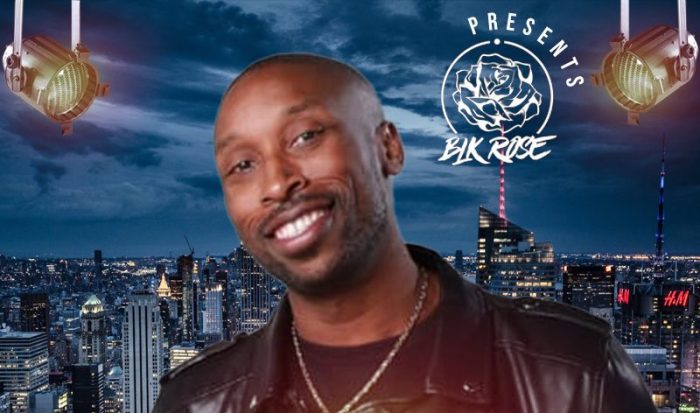There is fierce competition being waged on television.
It involves four chairs, four judges and music.
Allegedly the weekly contest pits the best of the best singers selected by music experts who sit in judgment each Monday on a program called “The Voice.”
During this season, Jamaican Tessanne Chin is testing her mettle as one of the select few and a finalist for a recording contract.
Chin won more than cool points on the first episode when she sang Pink’s “Try Me.”
Her vocal ability caused four judges to reverse their backward facing chairs to face her forward.
Maroon Five singer Adam Levine scooped her up and his coaching has helped her to return votes from the viewing audience as well as his colleagues.
Since Chin’s first victory, Jamaicans at home and abroad have dominated social media networks soliciting participation. Ratings for the program in Jamaica have been overwhelmingly in favor of The Voice.
Last week, Chin faced-off against one of her teammates Donna Allen during The Voice 5 Battle Round portion of the contest.
Also coached by Levine, Allen is reputedly a full-force, explosion of sounds.
“I’m not trying to out-sing Donna, it’s not gonna happen,” Chin reportedly stated. “I want to win this for anyone who has a dream and wants to make something of themself.”
After both singers completed their renditions of Emeli Sande’s “Next To Me,” this is what the judges said:
Christina Aguilera: “You brought it. My choice would be Tessanne.”
Ceelo Green: “If I had to give it to someone, I would say Tess.”
Blake Shelton:”It was epic. I wish I had something to be critical about but I’ll have to go with Donna.”
At two to one, it was up to Levine to cast the deciding vote.
“You both know how I feel about you. Tess, you make everything so effortless. Donna, you were pretty astonishing. You each have something the other doesn’t.” Levine said.
However, he named Chin his winner. Chin’s victory qualifies her to move to the Knockout Round.
Allen praised her challenger, calling her “a phenomenal vocalist”.
Chin received kudos from fellow national achievers Damian Marley, poet Mutabaruka, Olympians Shelly Fraser Pryce and Usain Bolt and virtually every Jamaican who watched the competition.
ON TV:
BLACK ROOTS & ROUTES — “MANY RIVERS TO CROSS”
Not since Alex Hailey’s “Roots” captivated television audiences has another series delved with such depths into the journey of Africans who crossed the Atlantic Ocean to arrive on the American shores.
All-encompassing and equally engaging, Henry Louis Gates Jr. provides a 21st century approach with “The African-Americans: Many Rivers To Cross.”
On his 13th film project, the Yale University scholar who incorporates genealogy and genetic science to unravel the mysteries surrounding African-American history offers a six-hour, six-part series that begins with the arrival of the first African to arrive in Florida in the 1500s.
According to Gates’ account, prior to the Trans-Atlantic slave trade which brought large amounts of Africans from the continent a freed African left Spain with Ponce de Leon and may have been the earliest to explore the landscape.
The six-part weekly series spans 500 years of historical documentation that encompasses a journey from slavery to the White House.
With Jimmy Cliff’s reggae anthem providing sobering sounds to the series — “Many Rivers To Cross” – provides soothing comprehension in an episode entitled – “The Black Atlantic” as Gates retraces 300 years of Black inclusion to the American construction.
Episode two digs deep into the Age of Slavery, limiting the focus from 1800 to 1860.
From 1861-1896, the following episode explains – “Into The Fire” perhaps “the most tumultuous and consequential period in African-American history.”
It is a period devoted to the Civil War, the end of slavery and Reconstruction.
“From the beginning, African Americans were agents of their own liberation — forcing the Union to confront the issue of slavery by fleeing the plantations, and taking up arms to serve with honor in the United States Colored Troops. After Emancipation, African Americans sought to realize the promise of freedom — rebuilding families shattered by slavery; demanding economic, political and civil rights; even winning elected office. Just a few years later, however, an intransigent South mounted a swift and vicious campaign of terror to restore white supremacy and roll back African-American rights. Yet the achievements of Reconstruction would remain very much alive in the collective memory of the African-American community,” Gates said.
“Making A Way Out of No Way” recounts the years from 1897 t0 1940.
Jamaica’s Marcus Mosiah Garvey is prominently featured with his empowerment organization the Universal Negro Improvement Association. The migrant Caribbean man gets a full spotlight that details his vision for repatriation to Africa, economic independence and Black pride.
Episode five begins at 1941 with Rise, an upward movement towards Civil Rights in 1968.
“By 1968, Dr. King, the apostle of non-violence, would be assassinated, unleashing a new call for “Black Power” across the country.”
The final, television, outing focuses on — “A More perfect Union” spanning the years from 1968 to 2013.
Beginning Oct. 22, tune in each Tuesday at 8 p.m. to PBS stations for more details.
Catch You On The Inside!


























